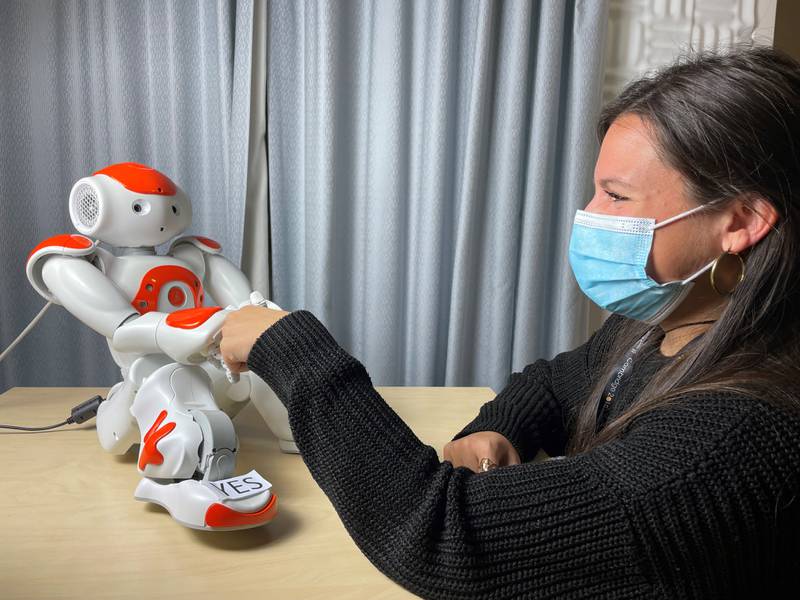Robots could help assess children's mental health, study finds
01 September, 2022

Robots can spot mental health issues in children better than their parents, a new study from the University of Cambridge suggests.
A team of roboticists, computer scientists and psychiatrists carried out a study with more than two dozen 8 to 13-year-olds using a 60-centimetre-tall humanoid robot that asked them a series of standard psychological questions.
Researchers said the results showed a willingness of youngsters to confide in the android assessors, with some even sharing more information with the robot than they had in other standard assessments online or in-person.
“Since the robot we use is child-sized, and completely non-threatening, children might see the robot as a confidant — they feel like they won’t get into trouble if they share secrets with it,” said Nida Itrat Abbasi, a doctorate student and one of the authors of the study.
“Other researchers have found that children are more likely to divulge private information — like that they’re being bullied, for example — to a robot than they would be to an adult.” The experiment was designed by Professor Hatice Gunes, who leads the affective intelligence and robotics laboratory at the University of Cambridge. Her colleagues from the department of psychiatry were also involved in the project to see if robots could be a useful tool to assess mental well-being in children.
Professor Gunes has been studying how socially-assistive robots can be used as mental well-being ‘coaches’ for adults. She said she became interested in how her work with robotics might overlap with children after becoming a mother.
“Children are quite tactile and they’re drawn to technology. If they’re using a screen-based tool, they’re withdrawn from the physical world. But robots are perfect because they’re in the physical world — they’re more interactive, so the children are more engaged.”
It was the first time that robots have been used to evaluate mental well-being in children. Twenty-eight each took part in a one-to-one 45-minute session with a humanoid robot while being observed from an adjacent room.
While not intended to be a substitute for professional mental health support, the researchers say robots could be a useful addition to traditional methods of mental health assessment.
“There are times when traditional methods aren’t able to catch mental well-being lapses in children, as sometimes the changes are incredibly subtle,” Ms Abbasi said. “We wanted to see whether robots might be able to help with this process.”
With a worrying rise in mental health issues among children, the robotic resource may be a welcome lifeline for increasingly concerned parents.
The Covid-19 pandemic and the knock-on consequences of home schooling and isolation from friends exacerbated an already disconcertingly high level of anxiety and depression among children in the UK.
A digital survey carried out by the National Health Service found that one in six children aged six to 16 were identified as having a probable mental health problem in July 2021, up from one in nine in 2017.
The number of emergency attendances by under-18-year-olds with a recorded diagnosis of a psychiatric condition more than tripled between 2010 and 2018-19 and worsened during the pandemic. Between December 2019 and April 2021, there was a 47 per cent increase in the number of new emergency referrals to crisis care teams in children.
Despite the severity and prevalence of the problem, resources and support to address mental well-being remain severely limited. In 2020/2021, only 23 per cent of children referred to services started treatment within the four-week waiting target.
In a report released in July, the Commission on Young Lives warned that post-Covid children’s mental health services are buckling under pressure to cope with the explosion of demand for help.
Anne Longfield, chair of the commission and former children’s commissioner for England, called on Britain’s next prime minister to pledge a “once-in-a-generation” post-Covid £1 billion ($1.16bn) recovery package of support “to make England’s children’s mental health services fit for purpose.”
The results of the University of Cambridge study were set to be presented on Wednesday in Naples, Italy, at the Institute of Electrical and Electronics Engineers' International Conference on Robot and Human Interactive Communication.
Source: www.thenationalnews.com
